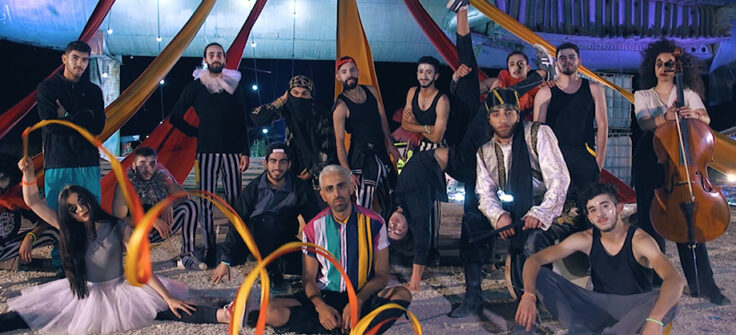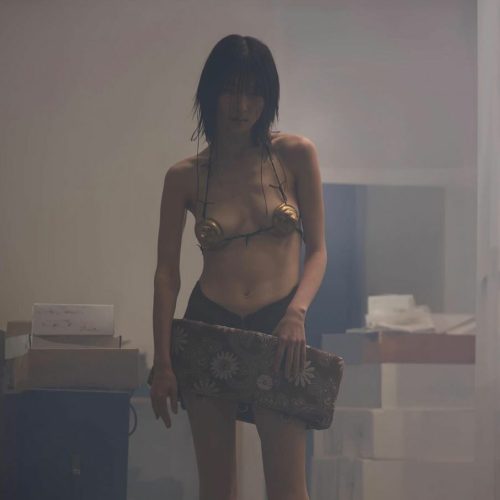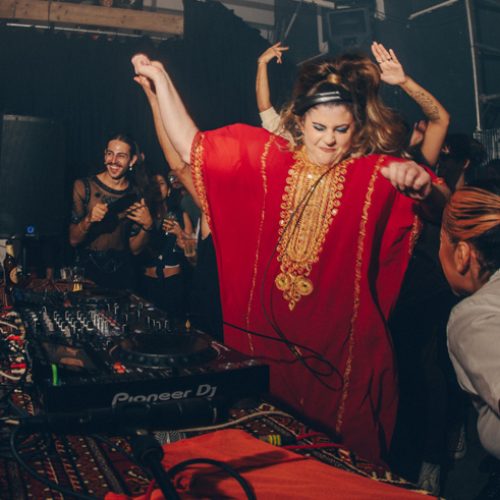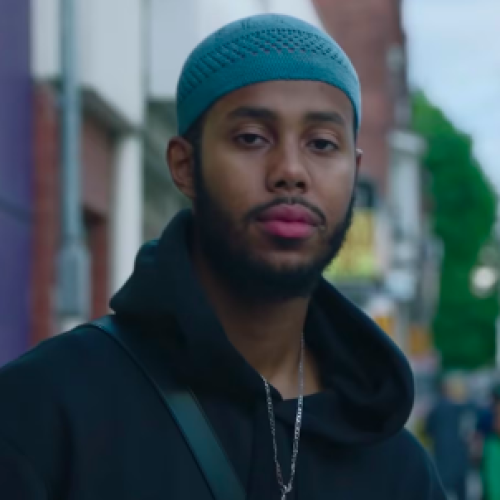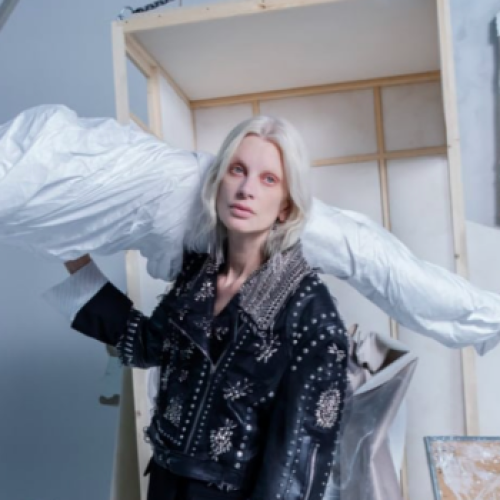With all the incredible talent rising out of Palestine for the past few years, it’s safe to say we might just be witnessing a creative renaissance of sorts. From Ramallah’s first ever techno female DJ to one of the Arab world’s first trap collectives, the Palestinian music scene is particularly thriving—an impressive feat considering the nation still being under occupation.
Some might argue that perhaps in a twisted way, Palestinian resilience is manifesting itself into different forms of art. After all, as the saying goes: “great art comes from great pain.” But while this might be true, the idea of a tortured artist is one of great debate— and Bashar Murad is here to put it to question.
“The occupation isn’t the only thing that defines us” he says, and he’s not wrong. Based in Jerusalem, Bashar has built a name for himself as one of the nation’s first pop singers. He’s known for breaking through societal barriers. But while his Palestinian identity is inherently politicized across the globe, Murad prefers to make music discussing human struggles and speaking out on subjects that have long been considered taboo.
Instead of incessantly putting focus on Israeli occupation, he prefers to talk about heartbreak and homosexuality. Of his songs, ‘More Like You’ clearly lays out his mission. Shot entirely in the West Bank, Murad decided to put a critical eye on gender roles imposed in Palestine—all while highlighting Palestinian individuals that broke through them, featuring everyone a female race car driver and a female truck driving instructor, to a male ballerina and Qahar Harshah — the first ever Palestinian male model.
As of today, the 25-year-old singer has been in the music game for eight years. First singing predominantly in English, but Murad is now writing music in Arabic as well. With his second ever Arab song ‘Shillet Hamal’ having just been released, the aspiring pop star is making waves through the region.
MILLE caught up with Murad to talk about how he got started in the music scene, why the occupation doesn’t define him, and a few exciting projects he’s got on the way.
How’d you get your start in music?
I was born into a musical family. My father was the founder of ‘Sabreen’, an iconic Palestinian band that started in the early ’80s. I was lucky enough to be born into that world, where music became an integral part of my childhood and existence. As I got older, music became a lifeline for me where I could express myself when I felt like no one would hear me.
Why do you choose to talk about these taboo topics in your music?
I think it’s so important to use music as a catalyst for positive change in society. I’ve seen how iconic musicians like Freddie Mercury, David Bowie, Madonna, and Lady Gaga influenced great changes in society through their music. And I rarely see Arab musicians attempting to do the same and to stand up for issues that are rarely spoken about. Music was and still is my therapy, and I think it’s important for me to give back and help others with music the same way it helped me. As a gay child and teenager, I felt like I was heard through the music of Madonna and Lady Gaga. And if someone can feel heard while listening to my music then it feels like I’m sort of returning the favor.
Does Palestine inspire you?
My music tends to reflect on daily lives of Palestinians. Starting with the occupation but also going into everyday things that we struggle with as humans. The occupation isn’t the only thing that defines us and I try to show that within my music.
As important it is for me to speak up about the occupation, I think it’s just as important for me to sing about gender equality, LGBTQ issues, and even universal themes like love and breakups.
What inspires you when writing?
My inspiration is definitely personal experience. I find it hard to write about things that haven’t happened to me or things that I haven’t felt. When someone listens to my music they are hearing my deepest feelings that I’ve chosen to expose.
What’s the Palestinian music scene like?
The music scene here in Palestine is thriving. There is so much happening that the world has no idea about. We have everything from electronic music to folk music to hardcore rock bands.
With occupation in place, do you feel limited being based in Palestine?
There is a lot of talent here in Palestine but very few resources. Making a profit from music is very hard. I am currently spending more money producing my music and videos than I am making. But I have the mindset that if I work hard enough there will be some kind of payoff or vindication at some point. And at the core of it all I make music because it’s my only passion. It’s also really hard to manage to tour abroad because of visa issues.
Considering Arab society is still quite conservative, what was the reaction like to your video ‘More Like You’?
Surprisingly the positive and negative reactions were about even. A lot of people were praising the video and the participants in it. However, the comment section was also flooded with negative comments saying that gender roles are there for a reason and we shouldn’t try to alter them. To me however, it’s important to have the conversation regardless of what is being said.
What was the inspiration behind ‘Shillet Hamal’?
The lyrics of the song describe the feeling of hopelessness from society and focus on the outcasts who feel like they don’t fit in. In the video I chose to focus on individuals who pursue untraditional fields such as music, dance, and art. I met these really talented dancers from Nablus who have created their own scene. And in a way this video is a celebration of their pursuits to lead their own paths in life rather than comply to what society thinks is more suitable for them to do.
What else can we expect from you? Any exciting new projects on the way?
Yes! Next week I will release a song with Al-Qaws for Sexual and Gender Diversity in Palestine. The song is titles ‘Ma Bitghayirni’ (You Can’t Change Me’), so look out for that one. I am also releasing within the next two months a song and music video that I’ve been working on for the past two years titled ‘Maskhara’ (roughly translating to ‘Bullshit’) The song talks about me trying to deal with life under occupation and the hook says: “Pour another drink, roll another joint, maybe I’ll forget all this bullshit”.





